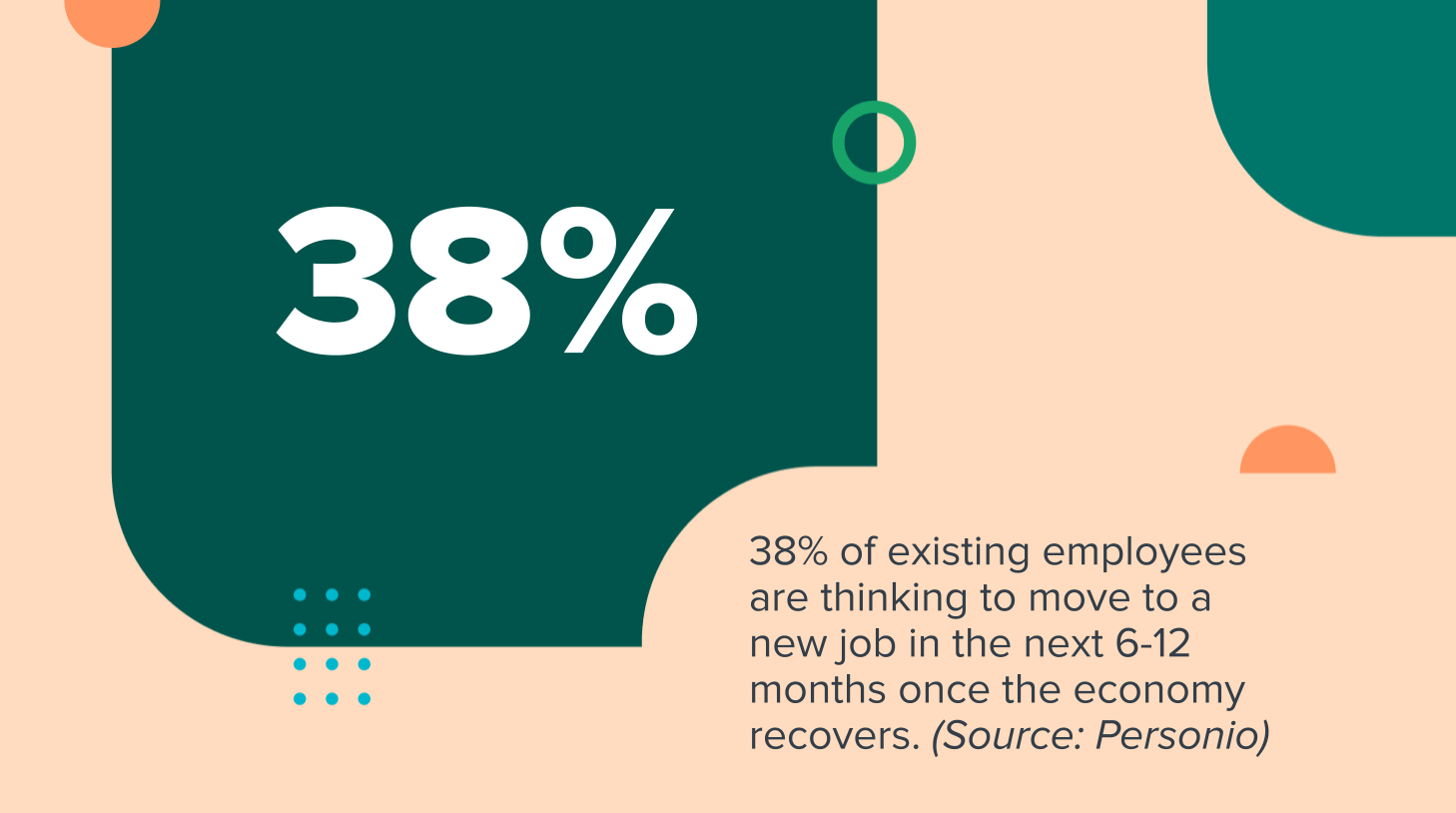Evolve your UK talent attraction and survive the Great Discontent
Workers are quitting in droves and they’re done with the current system. But you still need them. What can you do as an employer to bridge the chasm of discontent?

That’s a pretty loaded question, we admit. But it’s an important one. Let’s start by looking at how we ended up here in the first place – we’re in a strange age right now.
We’ve seen a volatile exit of the UK from the European Union in the form of Brexit, combined with a terrifying virus, both of which have shaken our society at the foundation – leading to economic and social upheaval at home and in the workplace.
What’s also happening – and something you’re likely noticing as an employer – is a mass talent exodus in the country, with one study by Workable partner Personio finding that four out of 10 UK employees will leave their job in the next six to 12 months.
This puts the onus on you, the employer, to take action, and quickly, says Personio CEO Hanno Renner:
“As businesses look to emerge from the crisis in a position of strength and turn the tide on the costs of a potential talent exodus, they now need to come up with a long-term people strategy. By prioritising their people and taking a more strategic approach to people management, employers can prevent an impending talent drain and drive their business performance as well as the wider economy.”
“The Great Resignation” is no longer a prediction. it’s a current reality, and it’s evolved to a Great Discontent. It’s becoming more challenging to motivate people to stay in their jobs, and harder to attract candidates to new roles. Data from the Workable network confirms this as well.
We see this, and we want to help you – the employer – overcome this challenge. After all, you need your people.
So we surveyed 500 people in the UK – some employed, some self-employed, some unemployed, all generally employable – to understand the most important factors influencing their career priorities. And now, we have results.
We identified four major themes in the dataset:
Money still talks
Despite all the new workplace developments, salary, perks and benefits are still top of mind in a job. People want – and need – more of it when working.
Flexy is sexy
Flexible work arrangements are important to many workers – and especially more so for women – but it’s not as high of a priority for their employers.
The power of connectivity
No matter the kind of work involved, people are at the heart of it all. When people feel connected to their colleagues and leadership, they’ll stay and they’ll thrive.
There’s no place like home
Integrating personal and professional lives is very important for people – it’s the top reason why those not working aren’t working and the top benefit of flexible work.
Major takeaways include the following:
- Want to attract people? Increase the salary, and build up the perks and benefits. 70.1% of workers say that’s one of the top reasons why they’ll bolt to a new job.
- Build strong teams with people who work well together. Relationships with colleagues is the number-one most attractive factor about a potential new employer (47.3%), and also the top area in need of improvement at their current employer (31.8%).
- Make it worthwhile for your workers to stay. Three quarters of respondents (74.6%) say they are either actively or passively looking for work right now – and 56.6% started looking within the last half year.
- Pay attention to your younger working population. More than two out of five (41.7%) of those aged 21-29 are actively looking, compared with just 12.9% of those aged 50-59.
- Establish remote work and especially flexible schedules as a permanent policy. Both are highly valued by workers, with 53.8% saying flexible schedules are important to them – particularly because it’s easier to integrate personal and professional lives.
- Mind that disconnect between you and your employees in the importance of flexible work. Nearly half think their employer will ultimately return to in-office (44.7%) and fixed schedules (46.8%).
- Support your employees’ home lives as well as their work lives – especially if they’re women. Females are more than six times as likely as males to cite family priorities as the reason why they’re not working (41.7% vs. 6.7%).
Read more – check out our in-depth analysis of what matters most to workers in the UK in a job. Or stay tuned until next week for the next excerpt from our Great Discontent survey report for the UK.
Interested in seeing what’s going on at the other side of the pond? Check out our US version of the Great Discontent report in its entirety.





